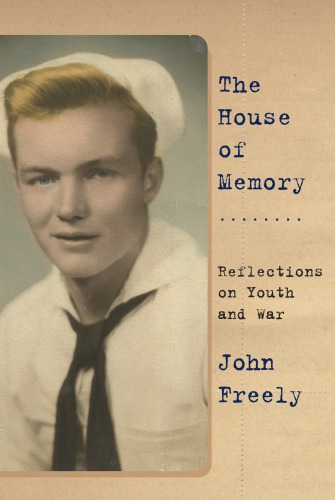
The House of Memory
Reflections on Youth and War
کتاب های مرتبط
- اطلاعات
- نقد و بررسی
- دیدگاه کاربران
نقد و بررسی

February 15, 2017
The nonagenarian author of scores of books about travel and history returns with a memoir about his boyhood, youth, and World War II.Freely (Light from the East: How the Science of Medieval Islam Helped to Shape the Western World, 2011, etc.), who has a doctorate in physics and taught the subject for decades in Istanbul, displays an unusually precise memory of events from boyhood. After sketching the immigrant stories of his Irish mother and father, the author mentions books he read as a 6-year-old, including The Last of the Mohicans, and he reproduces conversations from the 1930s onward. Such specificity adds an almost surreal clarity to the text. Freely writes about his successes and failures in school, his family's deep financial difficulties (they lived in a series of unpleasant dwellings), and some of his rough boyhood jobs--e.g., delivering papers (often to customers disinclined to pay), a gig in a paint factory, a stock clerk. In this final position, a woman supervisor grabbed him by the testicles and welcomed him to the job. Freely developed an early love for Homer--especially The Odyssey--and allusions to that work (and its hero) appear continually. He enlisted in the Navy, with his mother's reluctant consent, and the final two-thirds of the text relate those experiences--training, friends, scrapes with the authorities, and his experiences abroad, including some dangerous work along the Stilwell Road and the Burma Road. He saw horrors everywhere. Throughout the book, Freely treats many details of his experiences with an equality that they don't always deserve--readers will yearn for more emphasis at times, since all memories are not created equal. An error in the epigraph: he attributes to Keats a poem by Longfellow. A text that will appeal to those fond of memoirs about coming of age in the Depression and World War II.
COPYRIGHT(2017) Kirkus Reviews, ALL RIGHTS RESERVED.

























دیدگاه کاربران